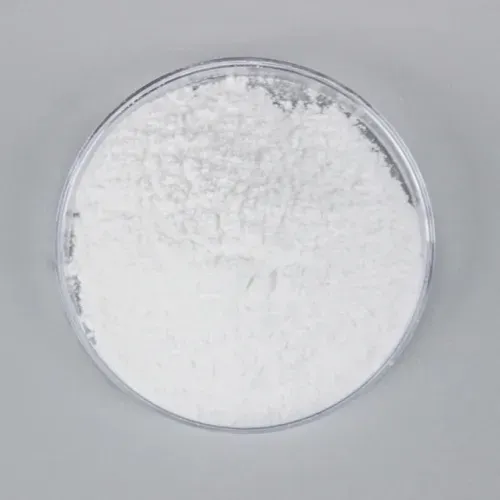Warning: Undefined array key "title" in /home/www/wwwroot/HTML/www.exportstart.com/wp-content/themes/1198/header.php on line 6
Warning: Undefined array key "file" in /home/www/wwwroot/HTML/www.exportstart.com/wp-content/themes/1198/header.php on line 7
Warning: Undefined array key "title" in /home/www/wwwroot/HTML/www.exportstart.com/wp-content/themes/1198/header.php on line 7
Warning: Undefined array key "title" in /home/www/wwwroot/HTML/www.exportstart.com/wp-content/themes/1198/header.php on line 7
- Afrikaans
- Albanian
- Amharic
- Arabic
- Armenian
- Azerbaijani
- Basque
- Belarusian
- Bengali
- Bosnian
- Bulgarian
- Catalan
- Cebuano
- China
- China (Taiwan)
- Corsican
- Croatian
- Czech
- Danish
- Dutch
- English
- Esperanto
- Estonian
- Finnish
- French
- Frisian
- Galician
- Georgian
- German
- Greek
- Gujarati
- Haitian Creole
- hausa
- hawaiian
- Hebrew
- Hindi
- Miao
- Hungarian
- Icelandic
- igbo
- Indonesian
- irish
- Italian
- Japanese
- Javanese
- Kannada
- kazakh
- Khmer
- Rwandese
- Korean
- Kurdish
- Kyrgyz
- Lao
- Latin
- Latvian
- Lithuanian
- Luxembourgish
- Macedonian
- Malgashi
- Malay
- Malayalam
- Maltese
- Maori
- Marathi
- Mongolian
- Myanmar
- Nepali
- Norwegian
- Norwegian
- Occitan
- Pashto
- Persian
- Polish
- Portuguese
- Punjabi
- Romanian
- Russian
- Samoan
- Scottish Gaelic
- Serbian
- Sesotho
- Shona
- Sindhi
- Sinhala
- Slovak
- Slovenian
- Somali
- Spanish
- Sundanese
- Swahili
- Swedish
- Tagalog
- Tajik
- Tamil
- Tatar
- Telugu
- Thai
- Turkish
- Turkmen
- Ukrainian
- Urdu
- Uighur
- Uzbek
- Vietnamese
- Welsh
- Bantu
- Yiddish
- Yoruba
- Zulu
Aug . 02, 2024 14:37 Back to list
Understanding the Benefits of Propylene Glycol-Based Antifreeze for Boiler Systems in Winter Conditions
Propylene Glycol Boiler Antifreeze A Comprehensive Guide
Propylene glycol, a synthetic organic compound derived from petroleum, plays a crucial role as a key ingredient in boiler antifreeze solutions. Known for its low toxicity and excellent heat transfer properties, propylene glycol has become a popular choice in various industrial and commercial applications, particularly in heating and cooling systems.
What is Propylene Glycol?
Propylene glycol (PG) is a colorless, odorless liquid that is hygroscopic, meaning it has the ability to absorb moisture from the air. This properties make it an effective antifreeze agent. While it is commonly used as a food additive and in pharmaceuticals, its utility as an antifreeze in boiler systems cannot be overlooked.
The Role of Propylene Glycol in Antifreeze Solutions
Boilers are essential components in many heating systems, providing warmth to residential and commercial spaces. During cold weather, the liquid inside these boilers can freeze, leading to extensive damage and costly repairs. This is where propylene glycol antifreeze comes into play. By lowering the freezing point of the liquid in the heating system, propylene glycol ensures that the boiler operates efficiently, even in extreme temperatures.
The antifreeze properties of propylene glycol derive from its ability to form a eutectic mixture when blended with water. This mixture can remain in a liquid state at significantly lower temperatures compared to water alone. Typically, propylene glycol solutions can achieve freeze protection to temperatures as low as -60°F when appropriately diluted with water, making them ideal for various climates.
Advantages of Propylene Glycol Antifreeze
propylene glycol boiler antifreeze

1. Low Toxicity Unlike ethylene glycol, which is highly toxic and poses environmental and health risks, propylene glycol is considered safe for use in applications where direct contact with food or drinking water may occur. This makes it a preferred choice for systems in residential areas.
2. Versatility Propylene glycol can be used in a wide range of applications beyond boilers, including chillers, HVAC systems, and even in hydraulic fluids. Its versatility makes it a valuable asset across multiple industries.
3. Excellent Heat Transfer Properties The efficient thermal conductivity of propylene glycol enhances the heat transfer in heating systems, leading to improved operational efficiency. This not only conserves energy but also reduces overall operating costs.
4. Stability Propylene glycol solutions display excellent stability under various temperature conditions, which means they have a long shelf life and maintain performance over time without significant degradation.
Proper Use and Application
It is essential to follow manufacturer guidelines when using propylene glycol antifreeze in boiler systems. Typically, a solution of 30% to 50% propylene glycol mixed with water is recommended, depending on the temperature requirements of the system. Regular monitoring of the fluid concentration is also advisable, particularly before winter, to ensure optimal freeze protection.
Conclusion
Propylene glycol boiler antifreeze offers a reliable, safe, and effective solution for maintaining the integrity and efficiency of heating systems in cold weather. Its low toxicity and superior performance in lowering freezing points make it an ideal choice for homeowners and businesses alike. As the demand for environmentally friendly alternatives grows, propylene glycol stands out as a leading solution in the antifreeze market. Properly utilized, it can help ensure that your heating systems operate smoothly, minimizing the risk of freeze-related damage and the associated repair costs.
Latest news
-
Certifications for Vegetarian and Xanthan Gum Vegetarian
NewsJun.17,2025
-
Sustainability Trends Reshaping the SLES N70 Market
NewsJun.17,2025
-
Propylene Glycol Use in Vaccines: Balancing Function and Perception
NewsJun.17,2025
-
Petroleum Jelly in Skincare: Balancing Benefits and Backlash
NewsJun.17,2025
-
Energy Price Volatility and Ripple Effect on Caprolactam Markets
NewsJun.17,2025
-
Spectroscopic Techniques for Adipic Acid Molecular Weight
NewsJun.17,2025

